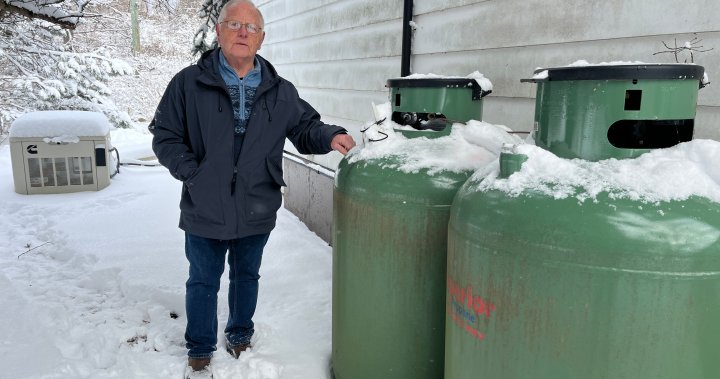Paragraph 1: The Shocking Price Hike
Joe Eagles, a retiree living on a fixed income, was stunned to discover a drastic increase in his propane tank rental fees. In June, he received an email from Superior Propane informing him that his annual charge would jump from $99 plus tax to a staggering $690. This represented a nearly six-fold increase, a financial burden he hadn’t anticipated and could ill afford. Eagles had been a customer of Superior Propane since 2021 and had consistently paid the lower rate, making this sudden escalation all the more surprising and concerning. The unexpected price surge left him searching for answers and questioning the rationale behind such a dramatic adjustment.
Paragraph 2: Seeking Explanation and Justification
Disturbed by the substantial increase, Eagles immediately contacted Superior Propane to inquire about the reasons behind the sudden change. The company’s explanation revolved around the concept of “inactive” or “minimally used” tanks. They attributed the price hike to the rising costs associated with maintaining and inspecting equipment, suggesting that customers who use less propane are effectively subsidizing these costs. This explanation, however, failed to satisfy Eagles. While he acknowledged using less propane, he found the magnitude of the price increase disproportionate to his consumption level, leaving him feeling unfairly penalized for his conservation efforts.
Paragraph 3: The Impact of "Inactivity" Charges
The concept of charging higher rental fees for "inactive" or "minimally used" propane tanks raises several important considerations. From the company’s perspective, it is understandable that they need to cover the costs of maintaining and inspecting their equipment, regardless of the level of propane consumption. However, the implementation of such a drastic price difference for customers using less propane could be seen as discouraging conservation. It creates a perverse incentive where customers feel pressured to consume more propane simply to avoid higher rental fees, counteracting efforts to promote energy efficiency.
Paragraph 4: Balancing Costs and Customer Fairness
The situation highlights the delicate balance between a company’s need to recoup operational costs and the fairness to customers with varying consumption patterns. While it’s reasonable for a company to adjust pricing based on usage, the scale of the increase in Eagles’ case raises questions about the proportionality and transparency of the pricing structure. A more gradual, tiered approach to rental fees might offer a more equitable solution, allowing the company to recover costs while avoiding undue financial strain on customers who use less propane, perhaps due to conscious conservation efforts or smaller household needs.
Paragraph 5: Broader Implications and Consumer Advocacy
Eagles’ situation brings to light a broader issue that may affect other propane users. The practice of charging significantly higher fees for "inactive" or "minimally used" tanks could impact a wide range of customers, particularly those on fixed incomes or those who prioritize energy conservation. This raises concerns about potential inequities and the need for greater transparency in pricing structures. Consumer advocacy groups could play a role in advocating for clearer guidelines and regulations to ensure fair pricing practices within the propane industry, protecting consumers from unexpected and disproportionate cost increases.
Paragraph 6: The Need for Transparency and Dialogue
The case of Joe Eagles underscores the importance of open communication and transparent pricing practices within the utility sector. Companies should clearly communicate any potential changes in pricing structures to their customers, providing detailed explanations for the reasons behind the adjustments. Furthermore, establishing clearer definitions of "inactive" or "minimally used" and the associated cost implications would allow customers to make informed decisions about their propane usage and avoid unexpected financial burdens. A proactive approach to customer communication and a commitment to transparent pricing practices can foster trust and avoid situations like the one experienced by Joe Eagles, where a significant price hike led to frustration and a sense of unfair treatment.

